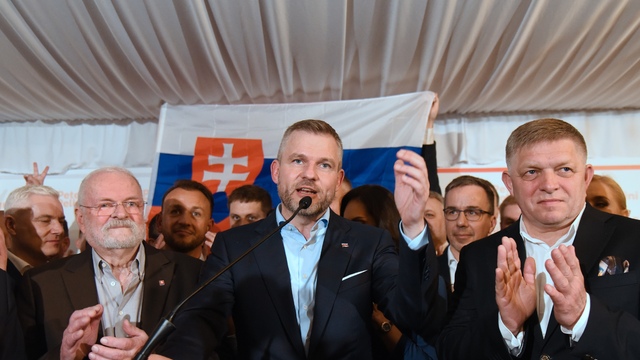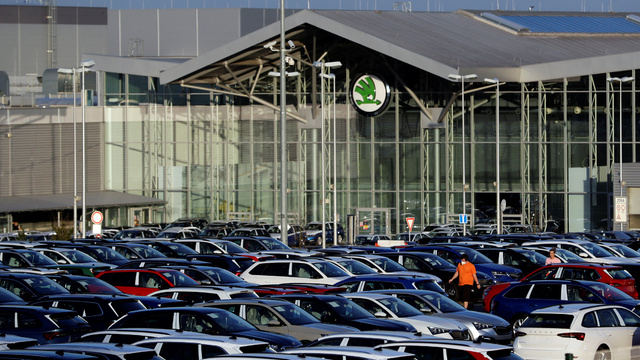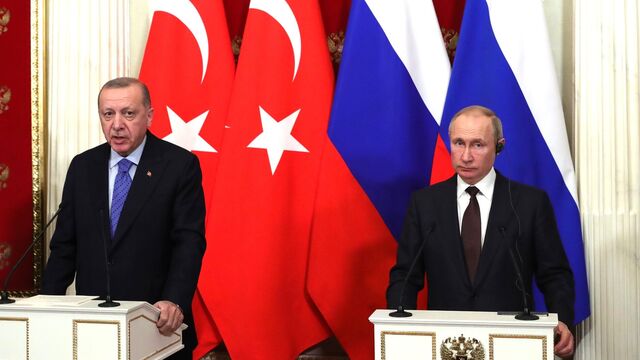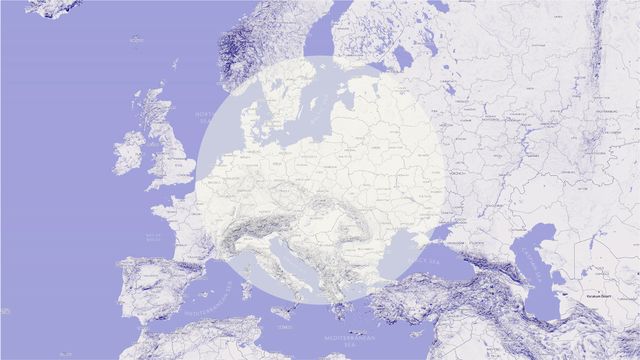Common fears, common opportunities? Czechia and Norway in the changing international context

brief
Researchers from the Institute of International Relations Benjamin Tallis, Mark Galeotti, Elena Zhirukhina, and Jan Mazač together with researchers from Norwegian Institute of International Affairs (NUPI) recently published a policy brief called "Common Fears, Common Opportunities? Czechia and Norway in the changing international context". The authors of the policy brief participated in the COMFEAR project number EHP-BFNU-OVNKM-2-039-2019, financed by EEA and Norway Grants 2014-2021, Bilateral Fund, whose aim was to identify common fears among Czech and Norwegian public and policymakers and their role in forming public opinion and foreign policy. Moreover, the project aimed to deepen cooperation between IIR and NUPI.
“Every change of scene requires new expositions, descriptions, explanations,” Milan Kundera once observed.1 With long-dominant structures in flux, European states – and perhaps smaller ones in particular –are now forced to rethink their foreign policy approaches and practices. While the changing international context has generally created anxiety and uncertainty, fear can also have productive effects. It can create opportunities – and incentives – for re-assessing as well as for diversifying and intensifying support networks and reaching out to new partners.
In this policy brief, we outline how one small Northern European state, Norway, and one Central European state, Czechia, have assessed and responded to the changing international political context so far.2 While located in different geopolitical settings, and with different histories, political systems and resources at their disposal, Norway and Czechia operate under many of the same international framework conditions. Both states are committed members of institutional frameworks and cooperation agreements such as the UN, NATO, the OSCE, the European Economic Area and Schengen, although neither state could be said to have been at the heart of decision-making in these fora. Both are ostensibly well-embedded in regional groupings: the Visegrad Four (V4) and the Nordic Cooperation (N5 or ‘the Nordics’) respectively. At the same time, neither state’s best interests are best served by being overly associated, or defined, by their membership of these groups. These similarities make them well-suited and interesting cases for comparative analysis and for consideration of the new possibilities created by global change. How are Norwegian and Czech officials and policy makers evaluating contemporary developments? What do they identify as the key fears to which they must respond? Which partners and institutional structures have they traditionally relied on – and what indications of change (if any) can we now observe?
As our discussion shows, Norway and Czechia also face many common fears – from concerns about the international order and their global sense of place, to challenges to key institutions such as NATO and the EU, and concerning specific issues such as climate change, energy security, territorial security, and how to best respond to migration. We argue that these common fears could provide a springboard to greater cooperation that can diversify Czechia and Norway’s support networks and entrench a greater sense of international belonging for both countries. As smaller states, Czechia and Norway have greater latitude to conduct such explorations than would larger powers or more central members of institutions and alliances. We conclude by identifying some common opportunities for a more structured Czech-Norwegian bilateral cooperation; ways to develop their declared but largely latent friendship.
FEAR OF DISORDER
Recently, both Norwegian and Czech policy makers have expressed fears that the rules-based international order is falling apart, not least because of increased great power rivalry and changes in US foreign policy and posture. In her address to the Norwegian Parliament in 2019, Foreign Minister Ine Eriksen Soreide observed that international politics is currently marked by the greatest unrest and uncertainty in a long time. She noted that the liberal world order is under pressure because of great power rivalry, but also because states with different value systems are becoming more influential.4 By a similar token, Czech Foreign Minister Tomáš Petříček has urged that “the respect for our rules-based order principles must be restored”.5
A key underlying fear for both Norway and Czechia, seems to be losing the United States as the number one security guarantor and guardian of the rulesbased international order. In both states, the prevailing representation of the United States remains that of the chief bilateral security partner, including within but not limited to NATO. This overarching representation remains almost puzzlingly unaffected by running responses to individual, provocative statements by US president Donald Trump. For instance, following President Trump’s speech to the UN General Assembly in 2019, Norwegian PM Erna Solberg conceded that it was “a challenge having a US president with a somewhat poor understanding of the global solutions needed, and how these benefit all states, including the United States”.6 In Czechia, there are contrasting views on the Trump administration, with some regretting his rhetoric but still relying on the US as a security partner. Others, notably in President Miloš Zeman’s circle, welcome the disruption he brings, while still also wanting (and counting on) US security guarantees.
Both Czechia and Norway’s approach to China is marked by ambiguity, trying to balance business interests and, in the Czech case, a notional strategic partnership, with concern for human rights within China and about Chinese influence abroad. In foreign policy addresses, fears are associated with China’s rise potentially challenging the rules-based international order, as well as with its alternative value-foundation – and promotion of alternative formats, such as the 17+1, which cut across established institutional memberships.7 These concerns have also been tied to specific issues such as hybrid warfare and foreign investments and in Czechia also carry the weight of historical experience of authoritarian rule.8 The entanglement of Czech elites in dealings with China and the blurring of lines between investment and policy has been of particular concern for some. Still, tangible negative effects of this blurring remain scarce for the time-being. As smaller states, neither Norway nor Czechia alone, are in any position to leverage against unwanted Chinese influence, but there remains scope for greater – and better coordinated – action to balance interests and concerns more effectively.
The most clearly expressed security fear in Norwegian foreign policy discourse is linked to Russia. Norway’s official rhetoric on Russia has long had two ‘tracks’: one emphasizes good neighbourly relations, good bilateral dialogue and practical collaboration in the North. The other is linked to NATO, where Norway has remained loyal to NATO’s rhetoric as to the deterioration of Russia-NATO relations post Crimea. As Soreide noted in her foreign policy address in 2019, Norway is “paying close attention to Russia’s military activity in our near abroad. What we see is a Russia which has come far in an extensive military modernization in the North. This increases Russian military capacity in our near abroad considerably”.9 Russia is also an emotive and sensitive issue in Czechia, including for historical reasons. A number of influential think-tankers and elements of the state apparatus emphasize concerns over ‘information war’, potential hybrid destabilization10 and other instances of nefarious Russian influence in the country, – which has had a considerable securitizing effect.11 Notable experts question the extent of Russian influence but point to other problems – particularly espionage and the exploitation of corruption – while others in business and government adopt a more pragmatic rhetoric and a transactional approach.12 Across the board, however, Czechia remains committed to NATO, including in its deterrence of post-Crimea Russian aggression and Foreign Minister Petříček has been a notably vocal supporter of both Ukraine’s sovereignty and its closer integration with Europe.1
INSTITUTIONAL FEARS: MISSING OUT AND MISSING IN
Czechia and Norway have much in common when it comes to pursuing their foreign policy interests through international institutions. Both states are members of NATO, as well as being in the EU’s Single Market and the Schengen area. Czechia preserves historical-regional ties in the Visegrad group and Norway has a range of cooperative ties with the Nordic states. In terms of shaping the institutional architecture and direction of security and defence cooperation, however, both Czechia and Norway have been somewhat peripheral, often having to adapt to changes made by bigger powers rather than taking the lead.
NATO is the core alliance through which both states seek security. Increasing doubts about the US as a security guarantor in Europe has given rise to increased fears that NATO could collapse, or at least become irrelevant for upholding European security. When French president Emanuel Macron recently called the alliance ‘brain dead’, both Czechia and Norway quickly came out against his remarks. Maintaining the status quo in NATO is a stated desire for both states. Therefore, the fear of the alliance diminishing is also a productive one, as exemplified for instance by the dedication of both states to reach the NATO target of spending 2% of their GDP on defence by 2024.
Beyond seeking to preserve, contribute to, and fulfil their spending commitments in NATO, Norway and Czechia have both welcomed recent developments in EU security and defence cooperation. Czechia is closely integrated and takes part in EU defence cooperation, whereas Norway as a nonEU member must follow developments from outside of the union, opting-in by invitation only. Yet, there are also similarities as neither state has been at the core of a mainly Franco-German process. For Norway, the emerging security and defence cooperation in the EU produces a fear of ‘missing out’. Because the EU exercises a certain degree of exclusivity, Norway has yet to be granted access to all recent developments in EU defence, such as PESCO – the Permanent Structured Cooperation under the EU’s security and defence framework. Czechia has welcomed EU defence developments, but its strong anchoring in NATO means Czechia is also wary of ‘missing in’ – helping core states in the EU to go further or faster in this area than is in the Czech interest, or being dragged along, beyond what is comfortable for both the foreign policy establishment and large parts of the population. Yet, as EU defence integration is still in its infancy, concerns over ‘missing in’ are more keenly felt in relation to, e.g., the Eurozone.
Brexit is a matter of concern for both Norway and Czechia, which have shared institutional outlooks with the UK. The UK has been an important counterbalance and (on many issues) a like-minded player for Czechia in the EU. For Norway, the UK has been a voice within the EU that ‘resonates well’ with Norwegian thinking.14 Accordingly, both states have stakes in post-Brexit developments in EU security and defence cooperation as well as the uncertainty surrounding the future of NATO.
POLICY FEARS
Norway and Czechia also share fears related to particular, if broad, policy issues. One example is energy security. Czechia depends on energy supplies from abroad, mainly from Russia. A key security concern is therefore to maintain uninterrupted availability of energy sources at an affordable price. Norway, by contrast, is a producing and exporting state, hence its fears are mostly related to the security of demand and the future ‘acceptability’15 of its supply to others, given changing attitudes toward fossil fuels.
Both countries are increasingly facing-up to the challenge of climate change. The European Green Deal, recently outlined by Commission president Ursula von der Leyen, aims to make the EU a net-zero carbon economy by 2050. However, the transition away from carbon is likely to have an impact beyond the EU, reshaping geopolitics and global economics, and potentially becoming a source of instability, insecurity or even conflicts. In coming years, energy policy will likely be driven by concerns regarding energy-related emissions. Given their different (producer/consumer) positioning, we can expect Norway and Czechia to frame energy security differently. Understanding and constructively dealing with the other’s perspective would be useful.
Another core fear is related to migration. In the wake of Europe’s 2015 migration crisis, it has become one of the most politically contentious issues, including in Norway and Czechia. While migration is hardly a new political phenomenon, the dramatic impact of migration-related fears on the European political landscape is new. Various populist actors have benefited from an anti-immigration message, affecting cooperation and policies within the EU and the Schengen-area, as well as in national policies. In Norway, more than 17 percent of the population is made up by foreign-born or second-generation immigrants. Czechia, which is considerably more ethnically homogenous than Norway, has seen a much smaller inflow of migrants per capita, with a foreign born population of around 5 percent. Nonetheless, migration is tied to fear in Czechia too, as exemplified in statements by Czech politicians16 and the reluctance to accept migration policies proposed by the EU, as well as in public opinion polls.17 Despite their differing experiences with migration, the two societies have related concerns, and both will have to find productive ways to deal with the near-certain increase in migration in the coming years as a result of global mega-trends.18
Fear also relates to the upsurge in terrorist attacks in European cities in recent years, including in Germany – Czechia’s largest neighbour. In Norway, two highprofile terrorist attacks have taken place recently, both solo attacks carried out by right-wing, Norwegian-born extremists. The probability of a terrorist attack in Czechia has been deemed low for many years. Since 2013 two people were killed and two injured as a result of slightly over a dozen small-scale incidents in Czechia.19 However, terrorism remains listed as a priority in strategic documents, connecting Czechia to the global discourse of fighting terrorism and reconfirming its alliance to international security efforts. At the societal level, the fear of terrorism is connected to a fear of the unknown and the foreign, more precisely, to fear of Islam and fear of migration. Several of the small scale terrorist incidents in Czechia were inspired precisely by anti-migrant, antiMuslim sentiments – like the larger attacks in Norway. Although Czechia has not witnessed any attacks associated with Islamist groups and given that a Muslim minority accounts for just 0.2% of population, such fears have grown disproportionately, stoked by populist political actors.
In both states, fears relating to migration and terrorism are connected to and exacerbated by societal division and uncertainties over the future societal cohesion. The fracturing liberal European consensus reflected in the politics of both states, and major changes that will come not only in relation to climate but also with regard to the future of work and economic wellbeing, are further issues that Czechia and Norway have in common. Contrary to commonly held perceptions and prejudices, liberalism is perhaps neither as entrenched in Norway nor as precarious in Czechia as it may seem from the stereotypes that are propounded in media reporting. The constellation of and contest between liberal and illiberal forces in the two states will have direct bearing on the way they are able to conduct their international relations and thus should also be addressed by those seeking to maintain liberal foreign policy positions (broadly understood).
CONCLUSIONS AND RECOMMENDATIONs
We have highlighted similarities in how Norway and Czechia assess or perceive recent shifts at the international political level as well as changes in the institutional security architecture. While they have different points of departure, the two states’ assessment of recent international developments is similar. In these areas, there is room for conversation and learning, notably on how to best respond to the increased great power rivalry and to changing dynamics in the EU (including as a result of Brexit) and in NATO (including as a result of the United States distancing itself from European allies). There are further similarities in how Norway and Czechia think about regional collaboration with the Nordic states and the Visegrad states respectively. In other areas, the differences in approach are more evident. Yet the changing constellation of international politics makes it in both Norway and Czechia’s interest to diversify their partners and overcome preconceptions of how they may respond to certain fears (as well as how they judge each other). For smaller states such as Norway and Czechia, the time is ripe to seek new and deeper friendships to help cope with rising fears – and also to explore – and create – new opportunities in a changing global context. Examples of such possibilities are to:
→ Introduce regular bilateral consultation on multilateral issues, and jointly explore the possibilities that exist to shape the emergent ‘Alliance for Multilateralism’.20
→ Seek to work in sub-formats of existing institutions – including through commitment to annual meetings to compare notes on NATO and coordinate policies.
→ Seek new, common institutional memberships or participation where common interests and concerns exist.
→ Explore the possibility of Czechia pursuing observer status at the Arctic Council.
→ Enhance direct contact between the two MFAs to share analysis, for example on developments in US, Russian and Chinese politics and intentions.
→ Exchange knowledge about migration policy – as well as about public education on migration and its benefits.
→ Work actively – and cooperatively – to promote the links between domestic liberalism (broadly understood) and national interest in both states.
→ Enhance counter-terrorism cooperation, with mutual visits and knowledge exchange between relevant institutional bodies, e.g.: BIS (Czechia) and PST (Norway), and joint practical training between and URNA (Czechia), FSK and Beredskapstroppen (Norway).
By addressing the mutual lack of awareness of the commonalities between the two states – in their fears but also their opportunities – their friendship could develop. Getting to know each other’s fears and interests is a good point of departure – and a precondition for making future closer cooperation more efficient and constructive. The changing international context makes such cooperation increasingly important.


![NPS_32_1__cover_print[90] (kopie).jpg](https://img.iir.cz/userimages/news_main/2507/4490_e6a1afb875a8b7aa0d86b55531e1b170_small.jpg)





